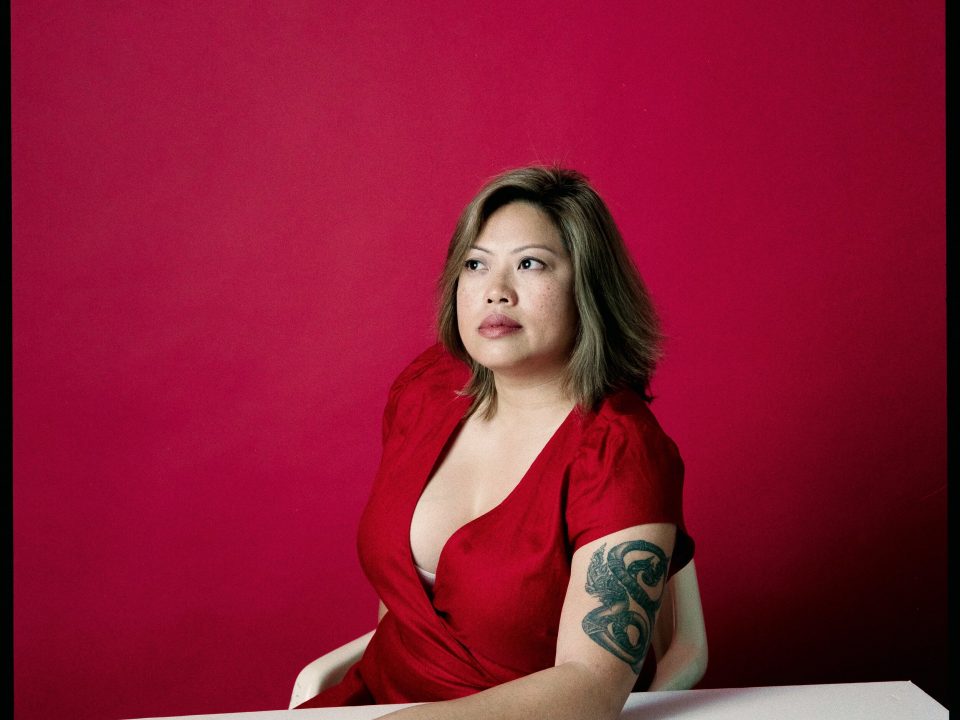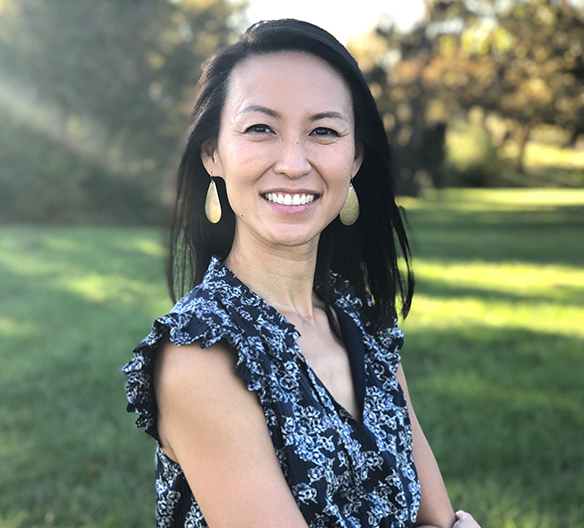You work on so many different things today – your resume is large and you’re really ambitious. I want to understand where this energy came from.
“I think half is just genetics – I’ve always been really annoying. My mother has tons of baby videos of me, and I don’t shut up. I’m always doing something, and building something. It’s like obsessive. I think there’s one point in the video where my dad tells me to shut up, because I will not stop talking.
And admittedly, I can be a lot. I know that. But I think that’s half of it.
I think the other half is like…my parents have been so inspiring to me because they came from, quite literally, nothing. My father, to impress upon this point, lived with eight brothers and sisters. His childhood home was completely concrete, and it’s smaller than the first condo I bought in San Francisco – and that condo was just for me, by the way. Just the disproportionate level of poverty is unbelievable and despite that, they found each other, and they were both sort of the canonical American dream.
My father became the CFO of a Fortune-500 company, coming from nothing. He brought over his entire family, paid for all of them, got them their green cards. My mother did the exact same thing – came from abject poverty and became the highest-paid woman in Tennessee, in the 80s and 90s, as a woman of color.
You fast-forward, and according to Harvard Business review, Asian women are the least likely to get promoted. And yet, three decades ago, you have my mother, who was the highest paid woman in the deep South. And so I find that sort of example incredibly empowering and inspiring. They never imposed anything on me – I don’t really have traditional tiger parents. But when you see that, you can only believe that it is possible for yourself.
The other nurture input, unintentional, of course, was watching my father pass away when I was a teenager. We had a very typical, father-son, conservative Asian relationship – which is to say we didn’t have one. I remember being at his funeral, and there were literally only six people, in this massive church. And my dad was the life of the party, CFO on multiple continents – and I remember thinking, ‘Is this it? You work your ass off, for your company, and six people show up to your funeral and then forget you the day later?’ That sucks.
I think that just motivated me – when you watch something like that so intimately, you force yourself to understand why life exists. And by virtue of that, why you exist. So I threw myself into Aristotle and other philosophers, trying to figure out the meaning of life. I think I figured it out when I was sixteen, and that is the other driving force.
Genetically, I am just obnoxious and annoying, but the other more thoughtful, practical thrust is that I know that the purpose of life is. And it is my responsibility now to give it to as many people as possible. Not because my version of it is right, but because I have the energy and resources now to get people a little closer to theirs.”
What is that meaning of life, to you?
“It sounds tautological, but the meaning of life is to have purpose.
So the trick is, most people never even know what their purpose is, in general. And then the second question is: if you find your purpose, is actually the purpose that you’ll have over time?
For example, a lot of people think that their purpose could be to build wells. That’s a tactic – I don’t know if that is a purpose. I don’t know if in year 20, you’re still going to be wanting to do that. If you care about health, and sanitation through health, that’s a purpose. That’s the meaning of life.
If you just backtrack to Aristotle, our single greatest imperative is to figure out why we are here, whether anyone sees us, and whether it will last. And so if I can build services, platforms, experiences, stories…all that to help people realize why they are here faster, and then get there – that is the biggest problem. And we will try to solve it.”
How can someone figure out their purpose, or why they’re here?
“There’s a bunch of different ways – everyone has their own path, methods, and all that.
First, do a lot of trial and error. It’s more important to know what you don’t want than what you do want. And unfortunately that’s painful, but it’s life.
Second, don’t confuse means with ends. I distinctly remember when I was twenty-one and at Penn, and everyone was like, ‘My dream is to an investment banker, to be a consultant.’ I was like, ‘No six-year-old says they want to be an investment banker or consultant.’ By the way, fast-forwarding, very few of those people have those careers still. All my friends have defected into other careers.
Don’t confuse the path with the goal – that’s really, really important. But how do you actually find that goal? There’s plenty of exercises out there that do it – I have one taught to me by the head of the Wharton Executive Education school that I swear by. Figuring out that goal is really critical.
The final thing is to put yourself in situations where you are destined to succeed. A lot of people, for whatever reason, still go to parties where they don’t actually enjoy themselves, and it’s not actually stimulating them but instead detrimental to them. Don’t do that.
Other people think that telling people about their dreams is doing, and it’s not. It’s talking. And so putting yourself in environments where you’re able to thrive and do rapidly is really important. Because at the end of the day, execution is everything. Ideas and dreams are honestly nothing.”
You mentioned that you learned a technique for figuring out your life goal from the head of the Wharton Executive Education school. Can you go deeper into what that exercise entails?
“So you can do it on notecards. Usually, if you do it right, it will take six to seven hours – which is laborious, but it’s your purpose in life, so why not?
The first step is to write down every single thing you care about on those notecards. It could be tactical, like ‘I like going to movies and having cheese popcorn at AMC,’ or it could be qualitative, like ‘I like friendship.’
Second, you bundle what’s similar: so if you have something like, ‘I like going to movies with friends,’ and ‘I like going bar hopping with friends,’ then those are just, ‘I like hanging out with friends.’ So bundle where it’s possible.
The third step is when it gets laborious – you have to explain to yourself why each of these things is important to you. So going back to our previous example, why is it important to you to have friends. It might be that you like to be entertained with friends, or that you like to learn from friends, or that you don’t like to be lonely, etc. And you’ve got to be really honest with yourself. A lot of people are ashamed of what they enumerate, because they think it’s egotistical, but you’ve got to be really, really honest.
Next, number four, is you’ve got to explain to yourself why each of those reasons matter. So again referring to our example, why is it important to not feel lonely? Why is it important to learn things? And you keep explaining down that web until you: 1) find yourself repeating something that you’ve said in the same web before, or 2) you find that your reasoning is tautological, meaning that you have no following reason to a certain explanation.
You’ll usually be left with three to five qualities. The fifth step is then to – and this is the other hard part – synthesize them all in their qualitative mission statements, and to find the connection between them.
So for me, I realized that I am more impact-motivated than relationally-motivated. It’s not to say that I hate people, it’s a 51-versus-49-percent thing, but I do care about impact most. And the form of impact that I care about most is emotional impact in people that is sustained over time, and that results in something practical.
Step six is to pick the archetype, or archetypes, that most reflect who you want to be, or what that mission is. For me, it was Walt Disney or Oprah.
The final, seventh step is you then figure out what industry they occupy, and what role you need to play to get there.
The exercise just gives you good clarity on what your qualitative goal is, and then how to practically translate it into a real career.”




